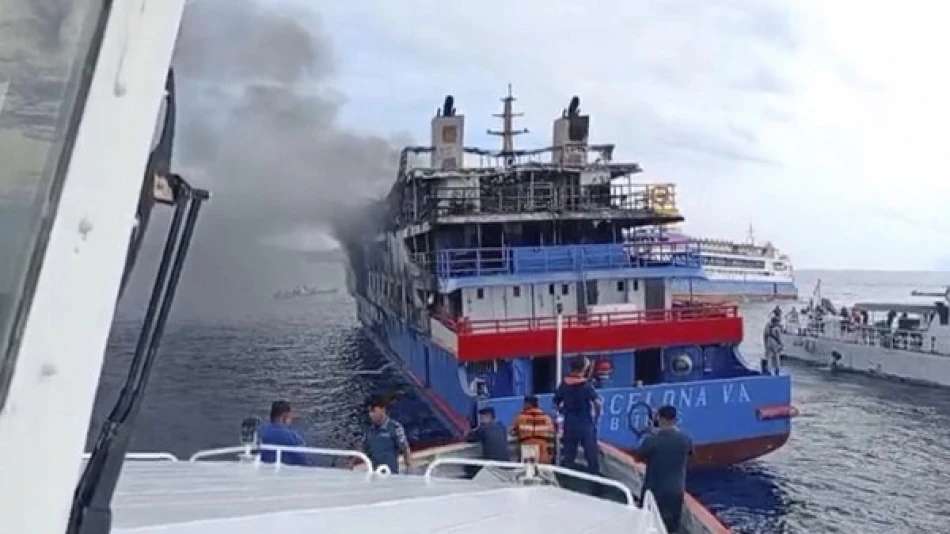
Tragedy at Sea: 5 Dead, Dozens Rescued in Indonesia Ferry Blaze
Ferry Fire Off Indonesian Coast Kills Five, Exposes Ongoing Maritime Safety Crisis
A deadly fire aboard a passenger ferry carrying hundreds of people off Indonesia's Sulawesi Island has claimed at least five lives, including a pregnant woman, highlighting the archipelago nation's persistent struggle with maritime safety standards. The incident underscores how Indonesia's vast network of inter-island ferries—critical for connecting remote communities—continues to operate with inadequate safety oversight despite repeated tragedies.
Rescue Operations Save 284 Lives
The KM Barcelona 5 ferry was traveling from Talaud, an island region in North Sulawesi, to the provincial capital Manado when fire broke out near Talise waters on Sunday. Indonesian Navy Vice Admiral Denih Hendrata confirmed that three naval vessels were dispatched to the scene, successfully evacuating 284 passengers and crew members.
Local fishermen played a crucial role in the rescue effort, pulling survivors wearing life jackets from choppy waters as they drifted toward nearby islands. The collaborative response between naval forces and civilian vessels likely prevented a far more catastrophic outcome.
Indonesia's Ferry Safety Record Under Scrutiny
This latest incident adds to Indonesia's troubling maritime safety record. The world's largest archipelago, comprising over 17,000 islands, relies heavily on ferry connections for transportation and commerce. However, the ferry system has been plagued by overcrowding, poor maintenance, and lax safety enforcement.
Pattern of Maritime Disasters
Indonesia has experienced numerous ferry disasters in recent decades, often involving overcrowded vessels operating in rough seas. The country's geography makes maritime transport essential, but regulatory oversight has struggled to keep pace with demand. Unlike developed nations with strict passenger limits and regular safety inspections, Indonesian ferries frequently operate beyond capacity with minimal safety equipment.
Economic and Social Impact
Ferry disasters disproportionately affect Indonesia's rural and island communities, who depend on these vessels for access to healthcare, education, and economic opportunities on larger islands. The KM Barcelona 5 route between Talaud and Manado represents a vital lifeline for residents of remote island communities seeking services in the provincial capital.
Infrastructure Investment Challenges
Indonesia's maritime safety issues reflect broader infrastructure challenges facing the developing nation. Upgrading ferry fleets, implementing modern safety systems, and training crew members requires substantial investment that competes with other development priorities. The government has announced various maritime safety initiatives over the years, but implementation remains inconsistent across the vast archipelago.
Regulatory Response Needed
This tragedy will likely renew calls for stricter enforcement of maritime safety regulations. Effective solutions require not just better vessels and equipment, but comprehensive crew training, regular safety inspections, and robust emergency response capabilities. The successful rescue of 284 people demonstrates that proper emergency protocols can save lives when disasters occur.
As Indonesia continues its economic development, ensuring safe maritime transport becomes increasingly critical for connecting remote communities to national growth. The challenge lies in balancing accessibility with safety standards that can prevent future tragedies while maintaining essential transportation links for millions of Indonesians.
Most Viewed News

 Layla Al Mansoori
Layla Al Mansoori






